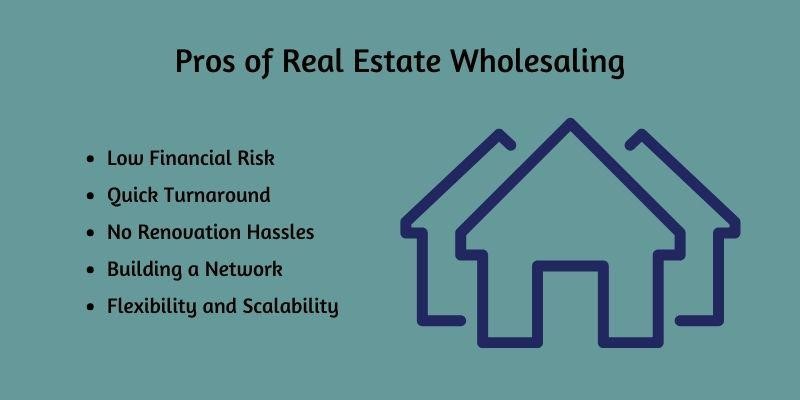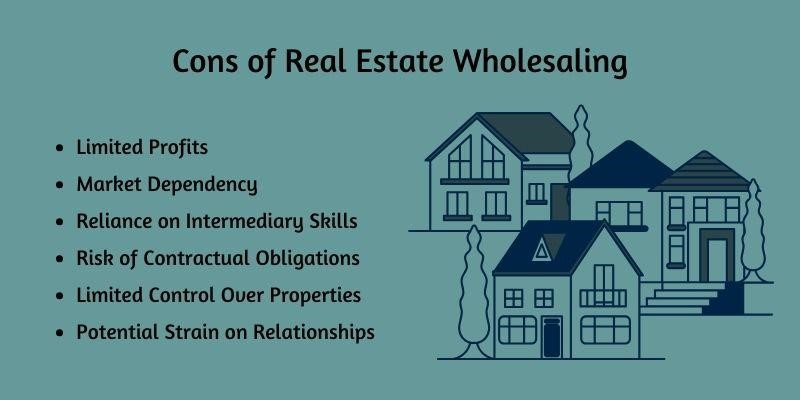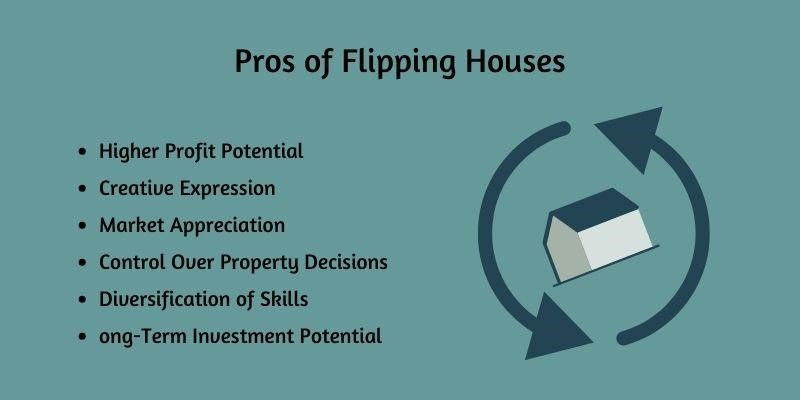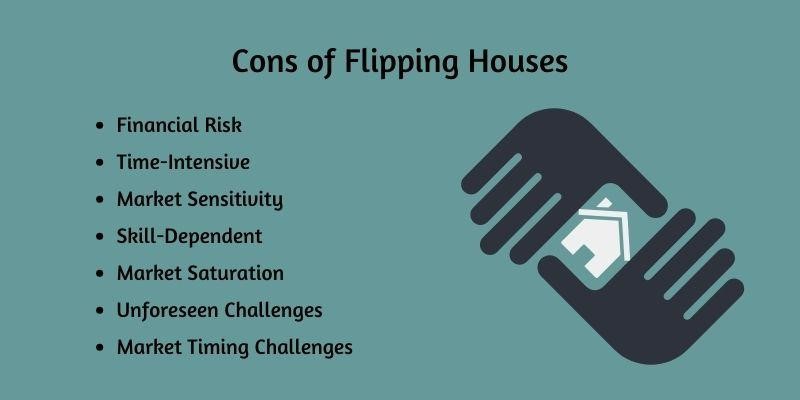When aiming to profit from real estate transactions, you have choices. Wholesaling and flipping houses offer an opportunity to gain returns from real estate investment.
Wholesale real estate involves connecting sellers with buyers without needing renovations, while flipping revolves around buying old properties, renovating them, and selling them for a profit.
Each strategy has unique pros and cons, and choosing between them is difficult.
In this blog, we are exploring the difference between wholesale real estate and flipping.
Whether you’re drawn to the simplicity of wholesaling or want to try flipping, understanding these approaches is the key to making informed decisions.
So let’s start exploring these options along with their advantages and disadvantages so you make an informed decision!
Wholesale Real Estate
Wholesale real estate is a strategic investment approach where a wholesaler identifies and secures promising property deals before assigning or selling the rights to purchase the property to another investor.
This method involves facilitating the transaction without actually taking ownership of the property, making it a preferred approach for those seeking to capitalize on real estate opportunities with minimal financial risk.
Pros of Real Estate Wholesaling
There are specific reasons why investors prefer real estate wholesaling. Here are the pros that can benefit you as an investor:
- Low Financial Risk: Wholesale real estate allows investors to engage in profitable deals without significant capital investment, making it accessible to those with limited funds.
- Quick Turnaround: Wholesaling often involves immediate transactions, providing investors with the potential for a quicker return on investment than other real estate strategies.
- No Renovation Hassles: Unlike property flipping, wholesalers don’t undertake the responsibility of property renovations. This eliminates the need for hands-on involvement and the associated challenges of managing construction projects.
- Building a Network: Wholesaling promotes relationships with sellers and buyers, creating a valuable network within the real estate community. This network can be leveraged for future opportunities and collaborations.
- Flexibility and Scalability: Real estate wholesaling offers flexibility, allowing investors to participate part-time or full-time. Moreover, its scalability enables investors to increase deal volume without the constraints of property ownership or extensive financial commitments.
Considering these pros, it is clear why investors are focused on investing in real estate wholesaling.
Cons of Real Estate Wholesaling
With pros come the cons. Here are the main cons of real estate wholesaling:
- Limited Profits: While wholesaling provides a quick turnaround, the profits are typically smaller than other real estate strategies like flipping. The wholesaler’s income is often derived from the assignment fee, which may not be as substantial as the potential gains from a complete property sale.
- Market Dependency: Success in wholesaling can be influenced by market conditions. In a competitive market, finding lucrative deals at favorable terms may become challenging, affecting the profitability of the wholesaling venture.
- Reliance on Intermediary Skills: Wholesalers heavily rely on negotiation and deal-finding skills. The ability to secure attractive deals depends on the wholesaler’s expertise in identifying motivated sellers and connecting with potential buyers, making it a skill-intensive endeavor.
- Risk of Contractual Obligations: Wholesalers contract with property owners and buyers. Failing to secure a buyer within the specified timeframe or not being able to fulfill contractual obligations may lead to legal complications or financial penalties.
- Limited Control Over Properties: Since wholesalers do not take ownership of the properties, they have limited control over the outcome. The condition of the property and its market value are critical factors that wholesalers cannot directly influence.
- Potential Strain on Relationships: Building a network is a significant advantage, but unsuccessful deals or mismanaged expectations can strain relationships with both sellers and buyers. Maintaining a positive reputation in the real estate community is crucial for long-term success.
Understanding the drawbacks of real estate wholesaling is essential for new investors. Consider them before making the final decision.
Flipping Houses
Flipping houses is a real estate investment strategy where an investor purchases a property in a distressed condition, intending to renovate and resell it for a profit.
The goal is to enhance the property’s value through strategic improvements and capitalize on market demand.
Pros of Flipping Houses
Flipping houses is favored by investors for specific reasons, and here are the pros that can prove advantageous for you as an investor:
- Higher Profit Potential: One of the primary attractions of house flipping is the potential for substantial profits. Successful renovations and market-appropriate pricing can result in a significant return on investment.
- Creative Expression: House flipping allows investors to unleash their creativity. From design choices to renovation plans, investors can express their vision and turn a neglected property into a visually appealing and functional home.
- Market Appreciation: Renovated homes often experience increased market demand and value appreciation. By staying attuned to market trends and preferences, house flippers can capitalize on the potential for higher selling prices.
- Control Over Property Decisions: Unlike wholesaling, where the property changes hands without physical involvement, house flippers control the entire renovation process. This hands-on approach enables precise decision-making regarding design, materials, and project timelines.
- Diversification of Skills: House flipping demands a diverse skill set, including project management, budgeting, and market analysis. Engaging in flipping allows investors to develop and enhance various skills essential for success in the real estate industry.
- Long-Term Investment Potential: While the primary focus is on short-term profits, successful house flippers may also explore opportunities for long-term investments by holding onto specific properties for potential future appreciation.
Given these advantages, it’s evident why investors are directing their attention toward investments in flipping houses.
Cons of Flipping Houses
Alongside the benefits come the drawbacks. Here are the primary disadvantages associated with flipping houses:
- Financial Risk: House flipping involves a significant investment in the purchase, renovation, and holding costs. Market fluctuations and unexpected expenses can pose financial risks, mainly if the property doesn’t sell quickly.
- Time-Intensive: Renovations take time, and delays are common in the unpredictable construction world. House flippers must carefully manage timelines to avoid prolonged holding periods, which can erode potential profits.
- Market Sensitivity: Flipping success is closely tied to market conditions. Economic downturns or changes in local real estate trends can impact the demand for renovated properties, affecting the profitability of house-flipping ventures.
- Skill-Dependent: Successful house flipping requires various skills, including project management, construction knowledge, and market analysis. Investors needing these skills may face challenges or unexpected setbacks during renovation.
- Market Saturation: In competitive real estate markets, the influx of house flippers can increase competition for suitable properties. This competition can drive up property prices and reduce profit margins.
- Unforeseen Challenges: Renovation projects often encounter unexpected challenges, such as structural issues, permitting delays, or unforeseen complications. Dealing with these surprises can add stress and strain to the flipping process.
- Market Timing Challenges: Flippers must carefully time their property sales to maximize profits. Selling in a slow market or inopportune time can result in lower-than-expected returns.
New investors must grasp the drawbacks of real estate wholesaling. Take these into consideration before reaching a final decision.
Conclusion
When it comes to the competitive real estate market, deciding between the types of properties is essential to understand. Understanding the difference between wholesale real estate and flipping can help you better decide your investments.
Confident investors suggest wholesaling to dip your toes into real estate and earn fast cash. Wholesalers skip the effort and expenses of fixing up houses.
Rehabbing homes demands more labor and financial investment, often leading investors to encounter unforeseen challenges. Nevertheless, for some, fixes and flips serve as a stepping stone.
The decision is yours whether you are interested in putting your money or effort. The key lies in aligning your investment goals, skills, and risk tolerance with the complexities of each strategy.
As you explore real estate in the UAE, consider the pros and cons, recognizing that there’s no one-size-fits-all approach.
We encourage you to explore ThinkProp’s real estate training programs if you are new to the UAE’s real estate sector. Our experts offer valuable insights, helping you with the knowledge and skills essential to succeed.
Whether you’re considering wholesaling or house flipping, ThinkProp can help you become a better real estate agent!










